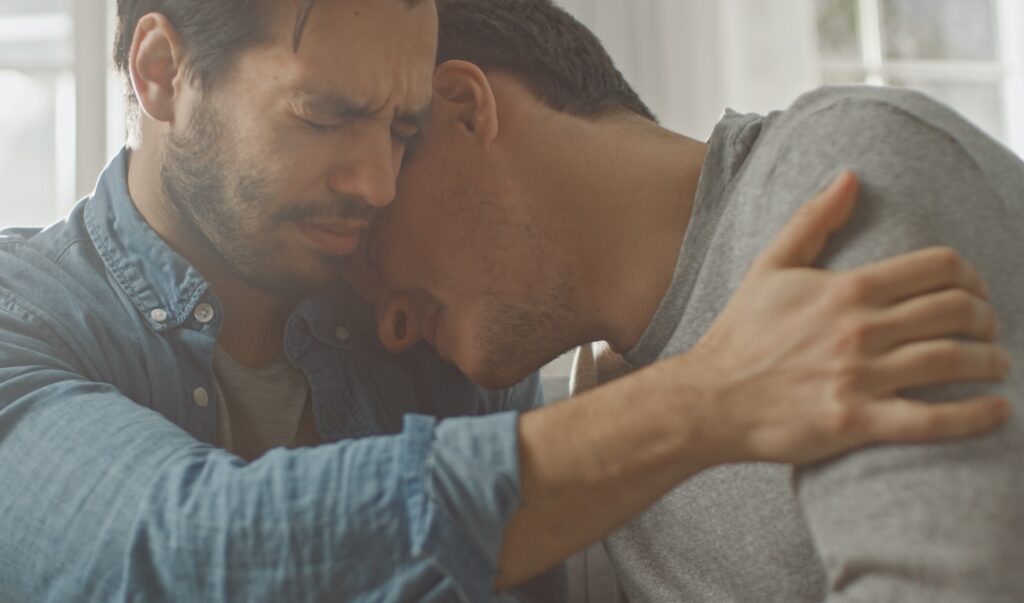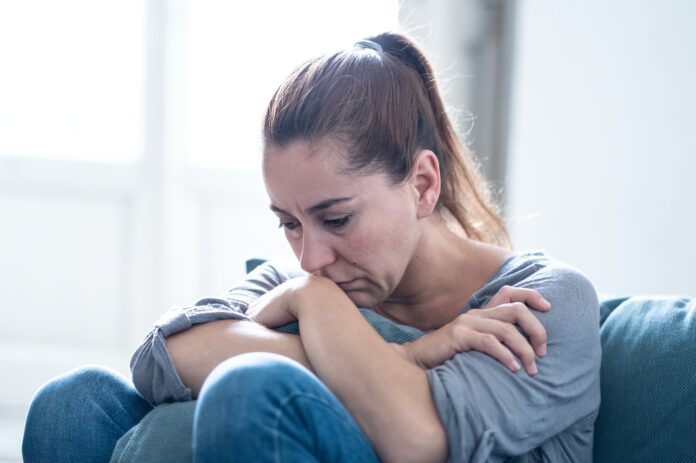Journalists are taught to keep themselves out of the story. But when I was rushed to the hospital on May 12 with a possible heart attack, I became part of the story of a hidden mental health problem for LGBTQ people: grief.
May is Mental Health Awareness Month. And while there has been some lip-service paid to that designation, there has been little national or community outreach about it. What little discourse there is has centered on the most common mental illnesses — depression and anxiety.
But how about grief and its impact on our psyches? What does it mean to be in a community constantly dealing with the grief of losses tied inextricably to our status as LGBTQ people coping with attacks on our personhood from legislators, the Republican party and sometimes, our own families? Hate crimes and the killings of trans and queer people often leave us with grief that is ongoing. In November there was a mass shooting at an LGBTQ nightclub, Club Q, in Colorado Springs during a drag event.
I didn’t have a heart attack. I had a heart “assault.” I was diagnosed with Takotsubo Cardiomyopathy, commonly referred to as Broken Heart Syndrome. Broken Heart Syndrome is a condition that can cause rapid and reversive heart muscle weakness. The main trigger for Broken Heart Syndrome is grief, but it can also be brought on by fear and extreme stress.
According to medical data, Broken Heart Syndrome occurs in about 2% of people who visit a provider for a suspected heart attack. Its symptoms mimic a heart attack. Treatments include heart medications, anti-anxiety drugs, stress management and cardiac rehab.
It wasn’t until I was talking with my cardiologist at the hospital that I realized it was the exact six-month anniversary of my wife’s death. We were married for 23 years and had first dated in high school.
Saffron Kim just memorialized the two-year anniversary of her partner’s death from cancer. She has been hosting Twitter Spaces on grief for widows and widowers and has been writing about her experience of grief on Twitter. She spoke to PGN about the differences between what many in the community call “gay grief,” and cis het experiences.
Kim told PGN, “One of the things that really hit me as a lesbian, when my partner of 26 yrs was dying, was having to explain over and over again to some hospital staff that we were married, that we were lesbians.”
“When she died, I often had the same daily battle with companies and organizations on the phone, by email, face-to-face in order to sort out all the ‘sadmin’ after her passing.”
Kim said after one person said ‘But you’re both women?’ that “It struck me that this probably doesn’t happen to heterosexual couples and that hurt.
It continues to hurt, adding to the ongoing pain of a deep grief that operates unlike anything I’ve ever experienced before. It has no pattern or timeline, just something that I will have to learn to live a life around.”
Greg Herren is possibly the best-known gay mystery and crime novelist in the U.S., with dozens of novels and collections and a slew of awards, including several Lambda Literary Awards for his work.
Herren has also been an AIDS educator in New Orleans for years. He told PGN, “It wasn’t until the pandemic that I realized I had buried my history. I went numb, and stopped going to funerals. This recent pandemic made me realize that not only had I never processed the trauma of the HIV/AIDS years, but I had never truly mourned for anyone because of the numbness, of going dead inside.”
A recent crushing loss opened Herren up to those past losses and to how little is discussed about grief — and gay grief — in the U.S.
Herren said, “When I lost my mother earlier this year, the grief was overwhelming. I can’t help but wonder if in releasing my grief for her, it had opened the doors for me to mourn everyone I lost back then.”

Dr. Bruce Lackie, who treats trauma patients, told PGN that men face an added burden in dealing with loss and grief: societal norms that can push them into unhealthy behaviors and risks.
Lackie told PGN, “I hesitate to give a blanket statement regarding men’s grief, but I will say that it is commonly accepted that men — straight or gay — are more likely to grieve in an isolated state, or become dependent on substances and other risk-taking behaviors than women. They, especially older men, are also more likely to attempt and complete suicide following the death of a partner.”
He said that men can “avoid, minimize, intellectualize, and even somaticize their grief. They generally have smaller social networks of support than women, and have more trouble asking for help, including mental health support. Again, I hesitate to make these blanket gender distinctions, but I think research backs this up. I would think that gay men struggle even more with this because they also face homophobia and its structural discrimination. The grieving process has got to be so much harder when you feel under threat.”
For Tonya Wilson, a trans woman who lost a close friend to violence nearly 20 years ago, feeling under threat and dealing with grief are inextricably linked. She told PGN that every time news breaks about another trans person who’s been killed, she “feels it in the pit of my stomach, in my heart. The tears just flow. It doesn’t matter that I don’t know them. I know it could be me, my sisters, my friends any day. Any day at all.”
Wilson, who told PGN she has attended many memorials for trans women in Philadelphia, said, “Where are we supposed to go with all this pain and loss? Those candlelight vigils only last for a moment. The grief — it’s so much grief — has lasted my whole life. I will take it to my grave. It’s that much a part of me.”
Dr. Jennifer Goldenberg has been treating LGBTQ people for various forms of trauma for years, including grief. She told PGN, “As a clinical social worker, I would think that the experience of the loss of a partner and the grief process that follows is just as devastating in both heteronormative and LGBTQ folks.”
Goldenberg detailed the specifics of grief which Kim and Herren both alluded to. “Grief is inherently isolating. Grieving people feel singled out: ‘Why did this happen to me? Why now?’ The reactions of family members and friends can add to this sense of isolation — including a general discomfort towards the survivor. This is evident in behaviors such as general avoidance, as well as unhelpful and insensitive comments such as, ‘Don’t you think it’s time to move on?’ when of course, every individual’s grief process is their own, and there is no set time frame.”
The failure to discuss grief in our society as a whole — exemplified by how more than a million Americans died of COVID during the pandemic and we never talk about it — adds to those issues of isolation. Goldenberg explained, “Because we as a society are not comfortable with topics of death and dying, grief and the grieving process, WE want to move on.”
Goldenberg said that for “LGBTQ folks who are grieving the loss of a partner” there is also “the added burden of navigating a hostile macro-environment with layers upon layers of discrimination embedded in homophobia and transphobia.”
Goldenberg drew a connection between “the increase in anti-gay and anti-trans bills across state legislatures in our country” and grief. She said, “My gay clients feel increasingly under threat, and their sense of isolation is heightened. Grief is often a solitary process and isolates many. However, for many in the LGBTQ community, it can be excruciating. They are often uncomfortable seeking or accessing care. Some of my own clients have experienced discrimination in healthcare settings. Why would you seek out more of the same treatment?”
Herren said this is how many men and gay people feel about the collective nature of gay grief that began with the AIDS crisis, but has never been addressed. He said, “We don’t talk about grief enough in this country. So many people think they have to suffer in silence, that sharing their grief is a burden…grief is real, and so many people are suffering.”
The City of Philadelphia has a bereavement program called Philly HEALs (Healing and Empowerment After Loss) which offers a range of free support services for those who are grieving the loss of a loved one. If you have thoughts of harming yourself or are experiencing suicidal thoughts, call 988 or go to your nearest emergency room.

